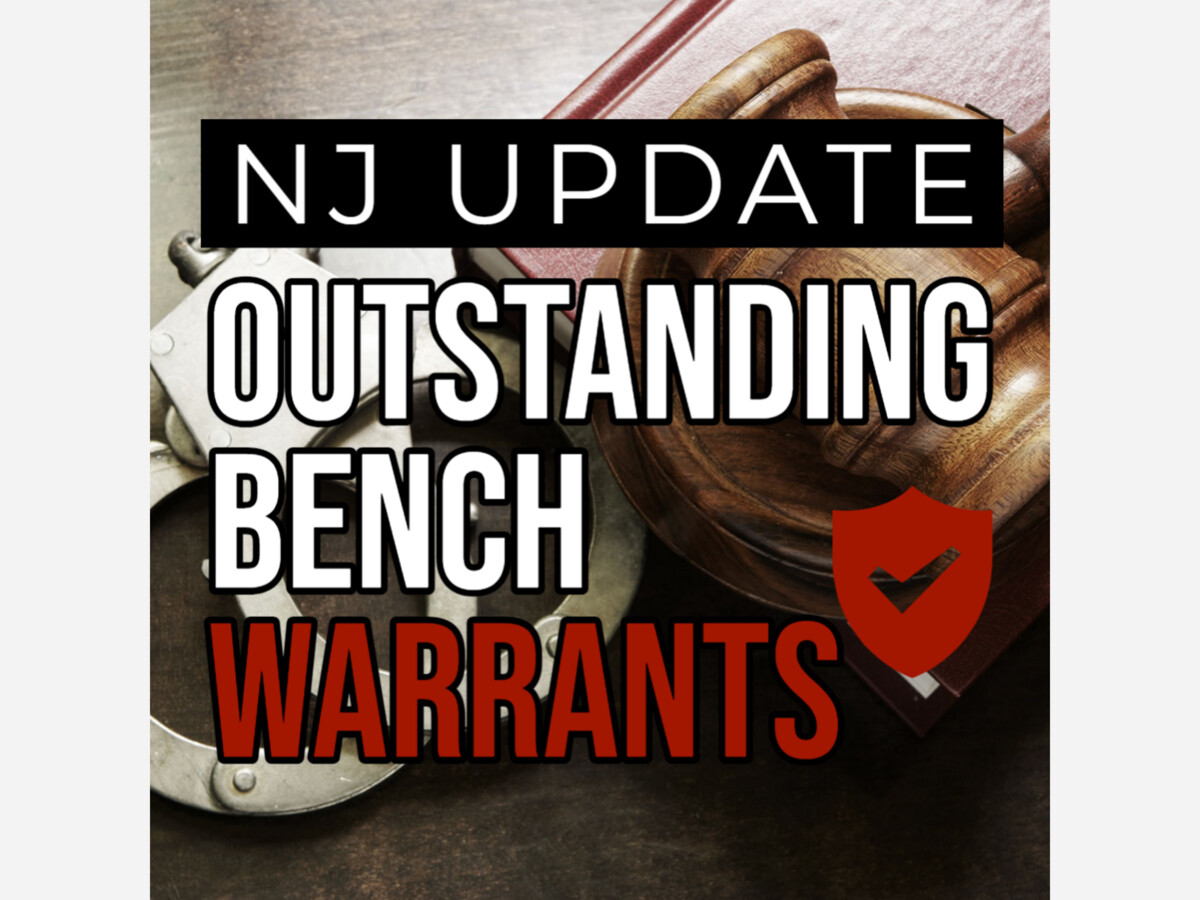Image

New Jersey’s Acting Attorney General announced this week a directive instructing law enforcement agencies to no longer subject individuals with municipal court bench warrants with bail amounts of $500 or less to custodial arrest.
Instead, these individuals – who are generally released after arrest – will now be given notice of a new court date and released on scene.
“This policy represents collaborative, common-sense governance that is both efficient and fair,” said Acting Attorney General Platkin. “Under these protocols, residents will no longer be subjected to unnecessary and intrusive custodial arrests for hundreds of thousands of outstanding low-level warrants—and officers across New Jersey will avoid spending time effectuating and processing such arrests that by and large do not further public safety. I’m thankful for the partnership of Chief Justice Rabner, Judge Grant and the Administrative Office of the Courts in this initiative.”
When municipal courts adjudicate traffic offenses, local ordinance violations, and disorderly persons offenses, like shoplifting, most result in the offender owing fines or fees. If a person fails to appear in court or pay the fine, the court can issue a warrant for their arrest, called a bench warrant.
Hundred of thousands of municipal court bench warrants remain outstanding in New Jersey. If law enforcement officers encounter an individual with an outstanding warrant, they must arrest that person, even if the underlying offense was a traffic ticket or a similarly minor offense.
“This policy is long overdue. The lives of so many poor and minorities have been ruined because of the negative byproducts of municipal bench warrants, but this policy presents a way forward,” said Bishop Jethro James of the Newark-North Jersey Committee of Black Churchmen.
These arrests can heighten tension surrounding interactions with police, increasing the possibility of more volatile encounters. Additionally, effectuating these arrests and processing the individuals requires significant time and resources from law enforcement.
“Giving troopers the ability to expand their discretion for low-level offense bench warrants will significantly decrease the amount of time spent on the side of the road during motor vehicle stops and pedestrian contacts. This will limit the potential for crashes and keep our troopers and the public safer during those interactions,” said Colonel Patrick J. Callahan, Superintendent of the New Jersey State Police. “By authorizing troopers to issue a bail recognizance form with a new court date, roadside interactions will move along much more efficiently.”
A new directive from the Attorney General provides law enforcement with procedures to follow when encountering individuals with outstanding municipal court bench warrants with bail amounts of less than $500. These individuals will not be subject to custodial arrest, a search, or handcuffing, and will sign a bail recognition form releasing them on the scene with a new date to appear in court.
“The policy to no longer arrest people for low-level bench warrants recognizes the high costs of incarcerating people,” said Legal Director Jeanne LoCicero of the American Civil Liberties Union of New Jersey. “This change takes an important step in preventing unnecessary arrests and jail time, which disrupt lives, jobs, and families; this takes a disproportionate toll on communities of color. Ending arrests for bench warrants in these cases helps move us away from an overly harsh criminal legal system where a burdensome process amounts to punishment, especially for people who can’t afford fines or bail. We thank the Attorney General and the Administrative Office of the Courts for prioritizing the resolution of matters through the courts rather than through our jails.”
Follow Morristown Minute on Facebook, Instagram, and Twitter for more local, state, and national updates on the news impacting your life in Morristown, NJ.